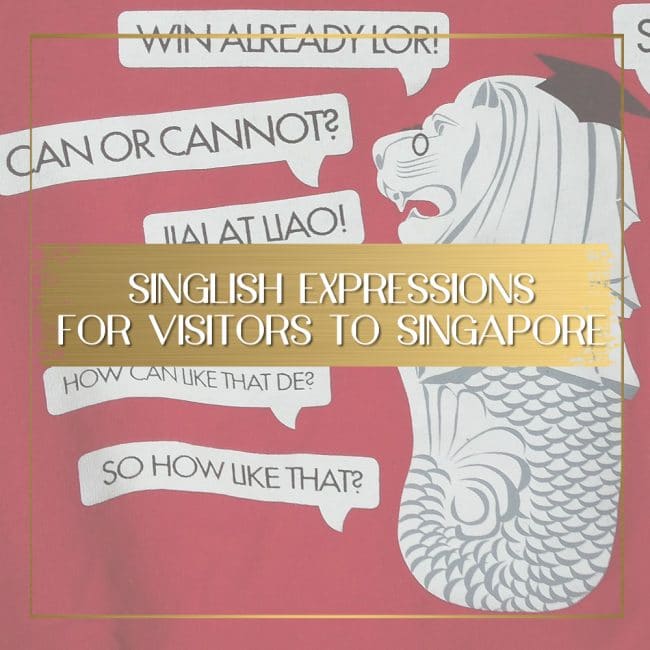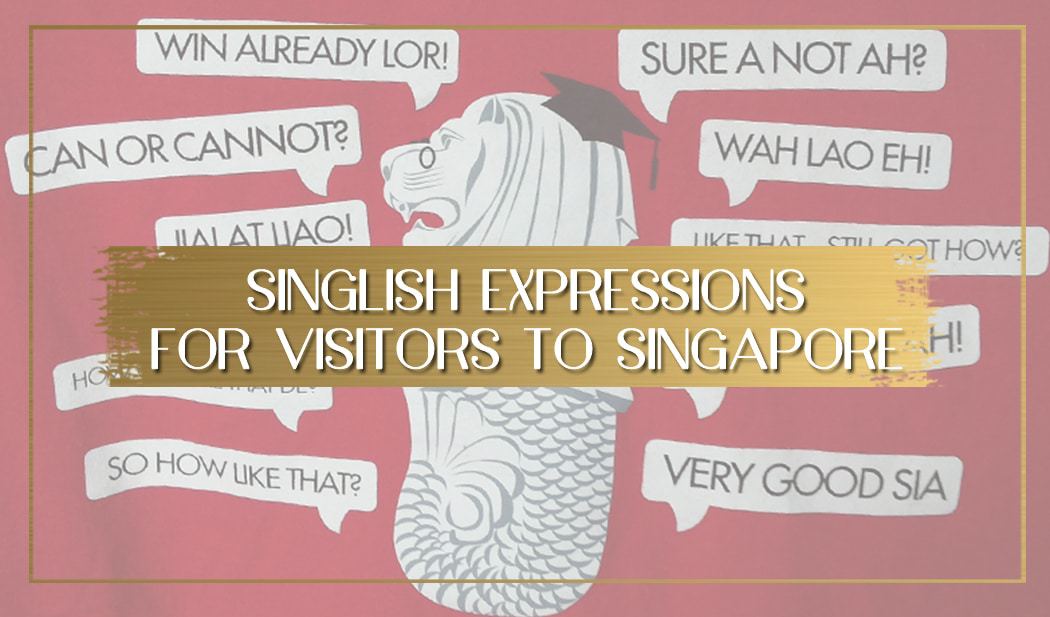As soon as I moved to Singapore I started using the word “lah” at the end of every sentence. What does it mean? Not sure. It is a word designed to place emphasis but you can do away without and the sentence will mean mostly the same. Singaporean use lah at end of everything. They also use leh and lor to mean similar emphasis with a positive, negative and double negative focus.
If you want to amuse yourself a bit more with the variations on the same you may check out this facebook post which went viral. Below, I am sharing some other common Singlish expressions that any expat will be faced with when visiting Singapore. Hopefully, these Singlish expressions are also useful to the visitors who interact more with Singaporeans and will help when exploring all the amazing things to do in Singapore.
What is Singlish
Singlish is a sort of made-up language that combines Asian words with English words. Since Singaporeans are mostly bilingual, speaking their native language and English fluently, many words have blended in and mixed up throughout the years and today, they speak a sort of colloquial English with Teochew, Mandarin, Malay, Tamil and Hokkien Chinese influences. You will hear both the elderly and the youngsters use these sentences. Singlish is discouraged by the Government and considered low level, but it is widely spoken across the islands. Locals will try to make an exception if there are foreigners around but they often forget.
Although Singlish is mostly understandable by context and intonation, I recently had a meet-up with other travel bloggers in Singapore and at some point I was so confused I no longer knew what they were talking about so here you are, a few fun and useful Singlish expressions that may come in handy, or impress Singaporeans you may interact with.
Chao Keng
To runaway from work/your duties/responsibilities. Example:
“He tried to chao keng one hour before official working hours end after a meeting but his boss caught him!”
Kiasu
Scared to lose/fear of losing out. Otherwise known as FOMO, something that Singaporeans are really afraid of! Example:
“Parents are very kiasu these days, if their friends’ children have tuition, they’ll get tuition for their kids too.”
Bojio
Did not extend an invite/didn’t invite. Example:
“Melissa: I’m going to watch a movie with John this evening
Jessica: wah bojio!”
Pangseh/fly aeroplane
To ditch. Example:
“Friday night’s plans confirmed ya? Don’t pangseh!”
Ah then??
Isn’t it obvious? (used in a rhetorical manner). Example:
“Anthony: Chinatown has good Chinese food?
Ben: Ah then??”
Catch no ball
To not understand something. Example:
“What did the lecturer say? I catch no ball!”
Arrow
To appoint someone to do something/ to be appointed a task, often while you are absent. Example:
“Since John is not in class today, we arrow him to be class monitor!”
Spoil market
To raise the standard of something to an (unnecessarily) high level, often resulting in discontent from others. Example:
“The teacher asked for a brief summary of the paper but John wrote an extremely detailed outline and even printed it out, damn spoil market!”
By left
The opposite of ‘by right’. Example:
“John: By right, we should not be crossing the roads unless it is pedestrian crossings and when it is green.
Mark: But by left, as long as the police don’t see, it’s ok”
Bao Toh
To tattle/sabotage someone. Example:
“I nearly got away with skipping class, but Alex went to bao toh me and that’s how the professor realized I was absent.”
Aiyyo
This is an expression, like saying, “wow!” and it comes from the Tamil. Example:
“Melissa: It is raining again, like cats and dogs.
Danile: Aiyyo!”

